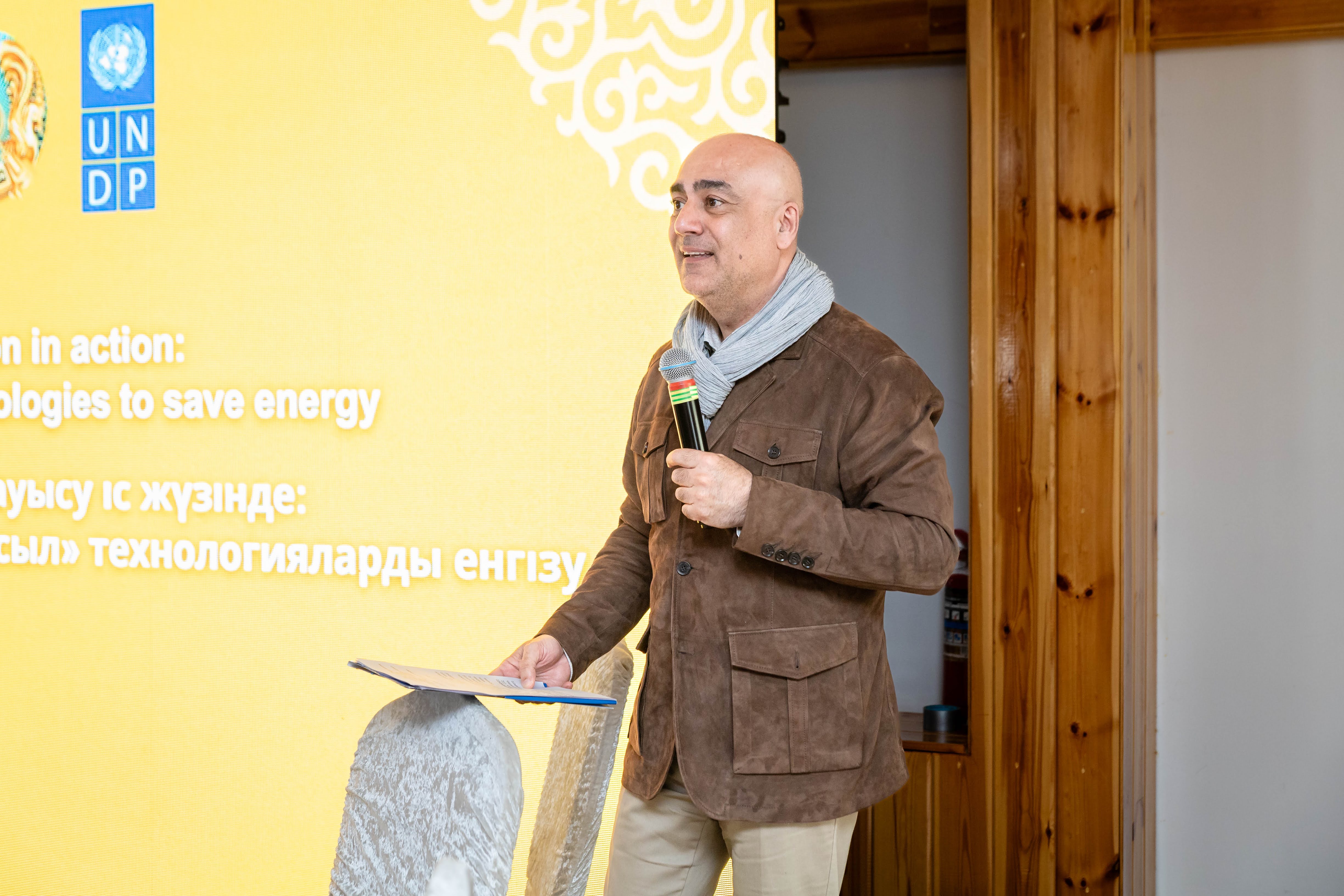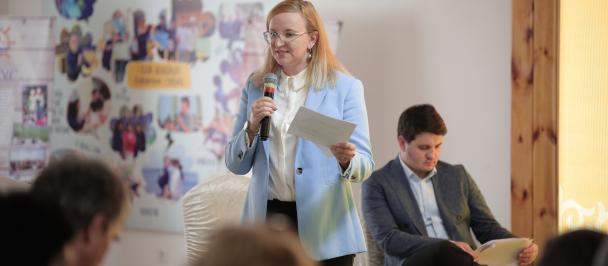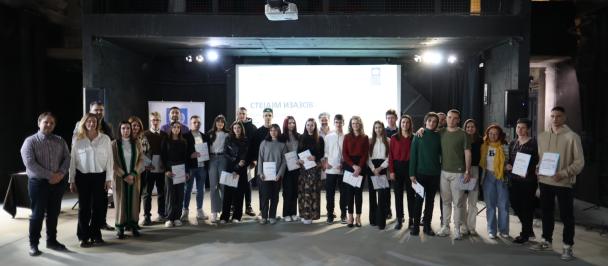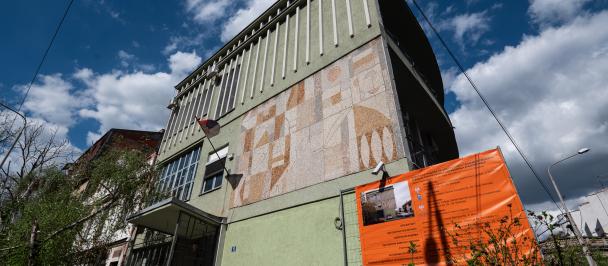Speech of UNDP Deputy Resident Representative in Kazakhstan Sukhrob Khojimatov at the final event of the project Sustainable Cities for Low-Carbon Development
April 29, 2024

Sukhrob Khojimatov, UNDP Deputy Resident Representative in Kazakhstan, welcomes participants of the event
Qurmetty khanymdar men myrzalar!
It is a great honor for me to be here today with you to mark a significant milestone in our nine-year partnership aimed at achieving carbon neutrality in Kazakhstan. In the context of the inevitable consequences of climate change, choosing clean, energy-efficient technologies becomes not just an environmental necessity but the foundation for improving quality of life and creating a sustainable future that meets our commitments to the planet and future generations.
According to a report by the International Energy Agency, global CO2 emissions from energy activities increased by 410 million tonnes in 2023, reaching a record high of 37.4 billion tonnes.
UNDP is actively addressing energy issues on a global scale, facilitating the energy transition as a basis for achieving all Sustainable Development Goals. For example, in Bosnia and Herzegovina, where buildings are a significant source of greenhouse gas emissions, digital technologies help enhance energy efficiency. It is estimated that buildings and the construction sector account for up to 40 percent of energy-related greenhouse gas emissions. UNDP's project assisted the government in implementing an energy management information system to collect, monitor, and analyze data related to energy consumption and greenhouse gas emissions in 75 percent of the country's buildings. This database played a key role in assisting decision-makers in prioritizing investments to support energy saving.
The situation is similar in Kazakhstan, where the residential and utility sector is the most energy-intensive sector of the economy and one of the largest consumers of heat and electricity, significantly impacting the level of greenhouse gas emissions. This sector accounts for 34 percent of total final energy consumption, including about 17 percent of electrical energy and more than 47 percent of thermal energy.
More than half of the greenhouse gas emissions in the heating and electricity supply sector for residential buildings are due to heating. The need for investment in low-carbon development in Kazakhstan is estimated by experts at US$610 billion, with about $5-10 billion needed for the modernization of multi-apartment residential buildings.
We are pleased that in 2015, UNDP, in cooperation with the Ministry of Industry and Construction of the Republic of Kazakhstan and with the support of the Global Environmental Facility, launched a project aimed at developing effective approaches, financial mechanisms, and incentives for promoting energy efficiency. This project has created an institutional infrastructure for green financing in Kazakhstan and stimulated the development of the green finance market. Nine years ago, UNDP raised the issue of the importance of financing green projects, proposing specific steps for selecting potential projects, and initiated discussions with various financial organizations on piloting various financing schemes, systematizing green technologies for taxonomy, etc. These initiatives subsequently contributed to the emergence of tools for subsidizing the interest rate of green projects and were included in the Unified Comprehensive Programme for the Support and Development of Entrepreneurship, implemented by JSC "Entrepreneurship Development Fund Damu".
The Project attracted private investments of $15 million in 50 energy efficiency projects, creating comfortable conditions for more than 300,000 people, including almost 150,000 women, across Kazakhstan, and reducing CO2 emissions by 1.1 million tonnes over the life cycle of the implemented technologies. In addition, significant energy savings were achieved - almost 100,000 MWh per year, leading to savings on electricity bills of up to 40 percent.
To address the country's challenges in energy efficiency and energy saving, we invite development partners to join forces and continue the best practices of this Project. We propose that the government scale up UNDP's experience in energy-efficient modernization of buildings, including creating a specialized financial program to support local representatives of small and medium-sized enterprises in implementing green projects.
Decarbonizing the energy system, eliminating the gender gap in access to modern and sustainable energy, reducing inequality, and improving the quality of life for local communities are at the heart of our efforts for green transformation. I am convinced that the initiatives and approaches demonstrated by the project will facilitate the country's energy transition, ensuring sustainable development for people and the planet.
Thank you! Kop rakhmet!

 Locations
Locations



